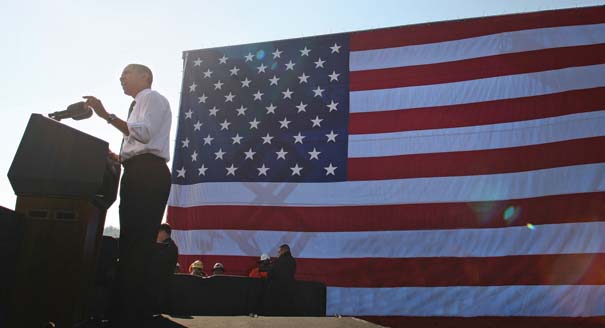Source: CSPAN
 Given the tumultuous and ever-changing dynamic in the Middle East, the United States must set reasonable expectations on how it can influence change in the region. Speaking at an event hosted by the Woodrow Wilson Center, Carnegie's Marwan Muasher argued that “the United States must understand that what is going on in the region today is a domestic process and that U.S. influence is limited.” The economic impact of the global financial crisis, the Iraq war, and the failure of U.S. diplomacy to foster a resolution to the Israeli-Palestinian conflict have led to limited U.S. economic, military, and political influence. With that said, Muasher was careful to note that Washington can still exert influence in the region, but warned that the United States must be disabused of the notion that it can pick winners and losersthere.
Given the tumultuous and ever-changing dynamic in the Middle East, the United States must set reasonable expectations on how it can influence change in the region. Speaking at an event hosted by the Woodrow Wilson Center, Carnegie's Marwan Muasher argued that “the United States must understand that what is going on in the region today is a domestic process and that U.S. influence is limited.” The economic impact of the global financial crisis, the Iraq war, and the failure of U.S. diplomacy to foster a resolution to the Israeli-Palestinian conflict have led to limited U.S. economic, military, and political influence. With that said, Muasher was careful to note that Washington can still exert influence in the region, but warned that the United States must be disabused of the notion that it can pick winners and losersthere.
With political Islam on the rise, Washington must talk to all parties engaged in the political process, not just liberal or secular parties with views more amenable to the U.S. policy. Ultimately, Muasher noted, “the United States must be patient. This process cannot be looked at through a two year prism. It will take years to result in a democratic culture.”







